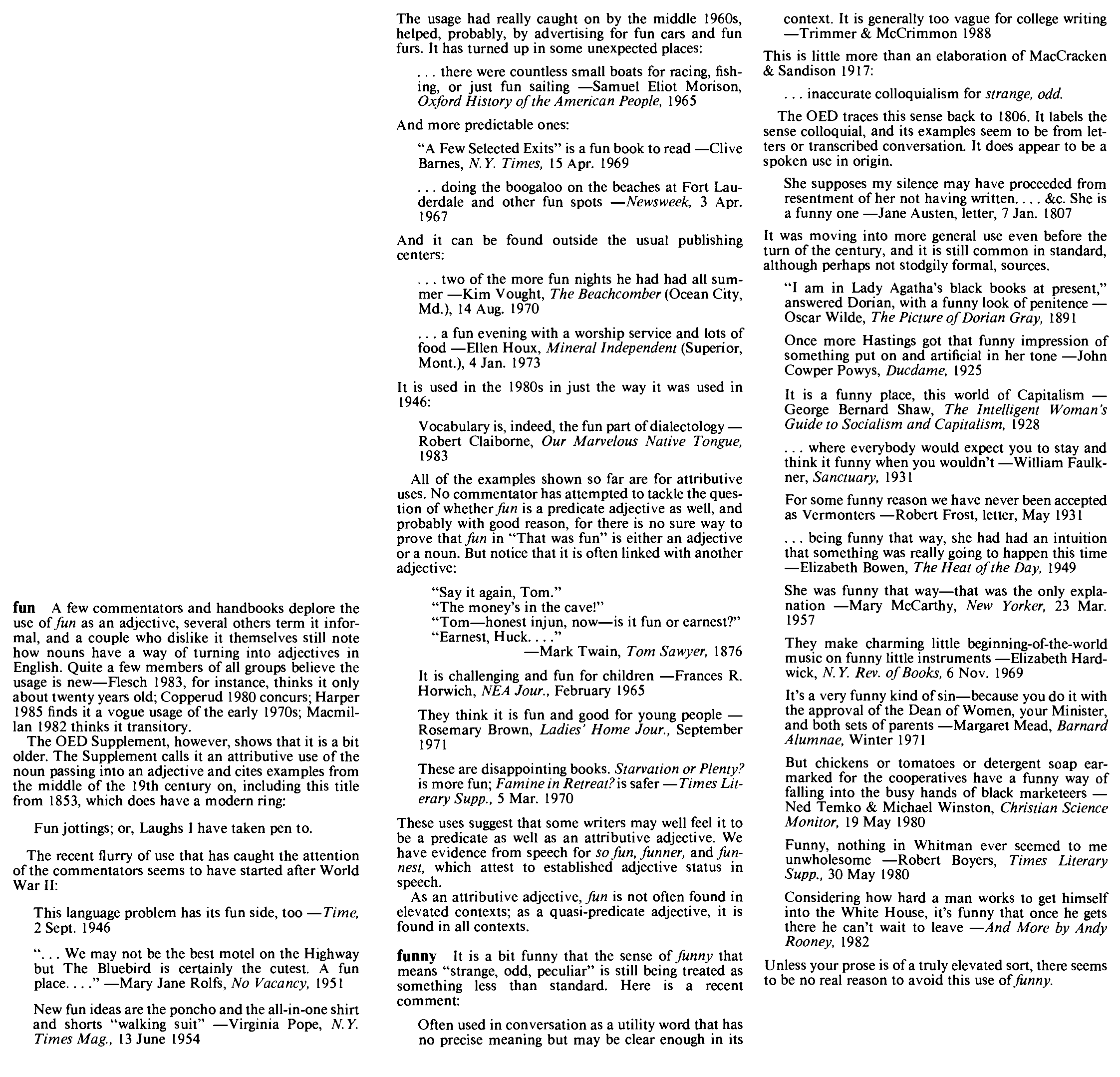this post was submitted on 01 Aug 2023
9 points (84.6% liked)
English usage and grammar
417 readers
2 users here now
A community to discuss and ask questions about English usage and grammar.
If your post refers to a specific English variant, please indicate it within square brackets (for instance [Canadian]).
Online resources:
- Cambridge English Dictionary
- Merriam-Webster Dictionary and Thesaurus
- Gilman's Webster's Dictionary of English Usage. This is a great and witty reference about usage, its history, and its controveries
Sibling communities:
Rules of conduct:
The usual ones on Lemmy and Mastodon.. In short: be kind or at least respectful, no offensive language, no harassment, no spam.
(Icon: entry "English" in the Oxford English Dictionary, 1933. Banner: page from Chaucer's "The Wife of Bath's Tale".)
founded 2 years ago
MODERATORS
you are viewing a single comment's thread
view the rest of the comments
view the rest of the comments
funny (the adjective) -> funnier
fun (the noun) -> more fun
Which, by implication, means you can technically have "funnier fun" but not "more funnier" but should probably avoid both of these strange constructs.
Thank you! I found and interesting note about "fun" (and also "funner", towards the end) in Gilman – I'm including a snapshot for the curious. "Funny" appears too :)
True. But people do say "funner" informally. "Darts are funner than bowling."
Yeah, languages are living things. That makes them so much fun.
So are toddlers. Let's prevent both from wandering off into the woods.
People say 'snuck', too. This is how languages go off the rails and acquire exceptions people complain about.
"fun" -> "funner" is less of an exception than "fun" -> "more fun"